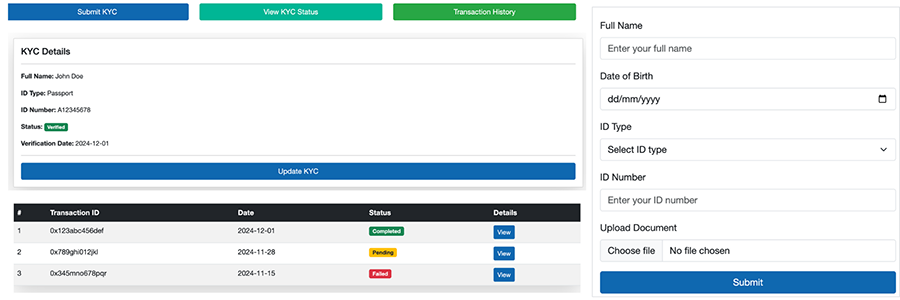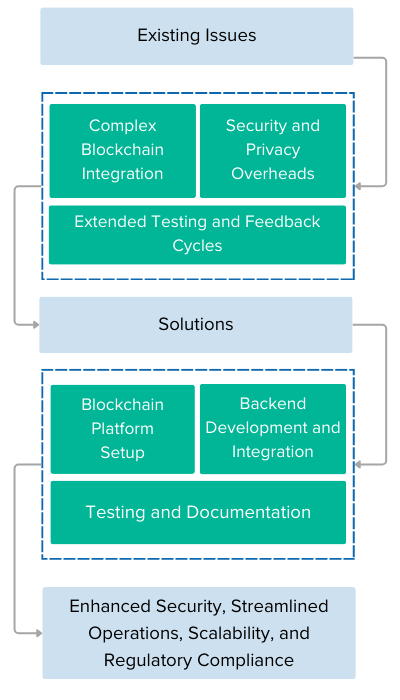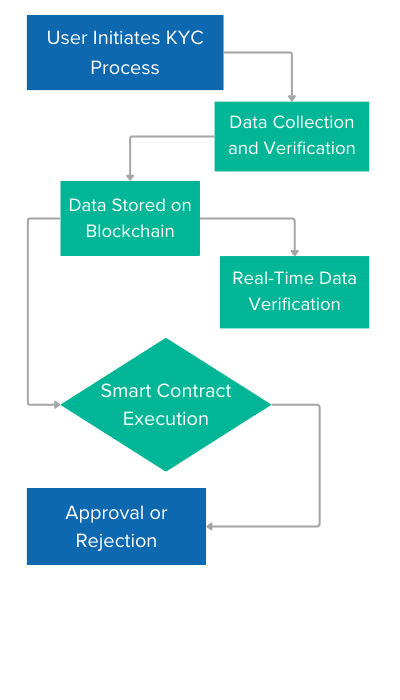
PROBLEM STATEMENT
Traditional KYC systems are plagued by inefficiencies, high costs, and
privacy concerns. The objective was to overcome these limitations by
integrating Distributed Ledger Technology (DLT) into KYC processes. The
project sought to build a secure and scalable framework capable of
handling sensitive customer data while complying with stringent
regulatory requirements. Key challenges included:
Complex Blockchain Integration: Aligning blockchain
components with traditional systems proved technically
demanding.
Security and Privacy Overheads: Ensuring data security
and compliance added significant costs.
Extended Testing and Feedback Cycles: Incorporating user
feedback required multiple iterations, impacting timelines and
budgets.
SOLUTION AND APPROACH
The team developed a functional KYC prototype using Batoi RAD,
Quorum blockchain, and smart contracts, focusing on
security, scalability, and compliance. The approach was structured into
three key phases:
Blockchain Platform Setup: Configured the Quorum
blockchain with secure nodes and network architecture. Developed
foundational smart contracts for automating KYC processes.
Backend Development and Integration: Integrated backend
systems using PHP and MariaDB. Connected the blockchain layer to
user interfaces for seamless interaction.
Testing and Documentation: Conducted rigorous security
and user acceptance testing (UAT). Created detailed technical
documentation for future scalability.
The project adhered to an iterative development methodology, ensuring the prototype met all user requirements through continuous feedback and improvements.


BENEFITS FOR CUSTOMER
Enhanced Security: By leveraging blockchain, the solution ensures
data integrity and protection against unauthorized access.
Streamlined Operations: Automated smart contracts reduce manual
intervention, speeding up the KYC process and lowering operational costs.
Scalability: The architecture supports future integrations with
banking systems, allowing the prototype to evolve into a comprehensive KYC
platform.
Regulatory Compliance: Advanced security features and robust
documentation make it easier for institutions to meet regulatory standards.

























